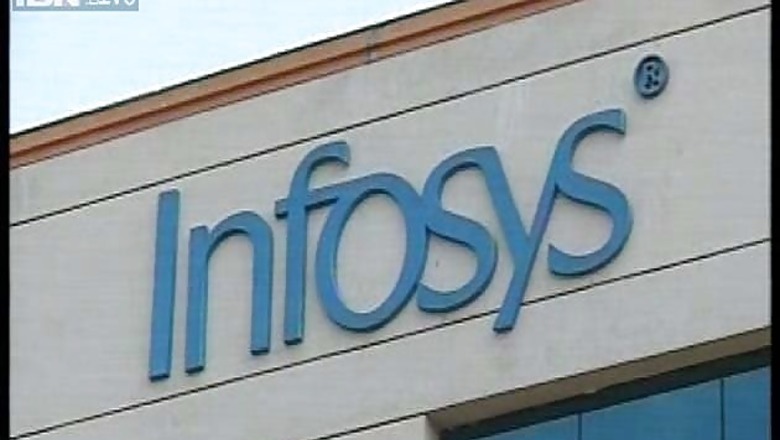
views
Mumbai: Infosys Ltd's new CEO has come up with a novel approach to reviving the financial fortunes of India's trailblazing outsourcing firm: use Facebook at work, tweet, but get the job done.
Infosys has long been run as a conservative company known for keeping strict tabs on work hours and sometimes fining employees for not wearing ties on specific days. Such cheerless self-regard could not have come at a more challenging time, analysts say.
In the last few years, the former bellwether of India's outsourcing industry has lagged rivals in winning contracts from the West, torn between chasing high-margin projects and low-margin bread-and-butter IT deals.
To be sure, Infosys has been ploughing into new technologies such as cloud computing and smartphone app development to help return the firm to the forefront of the IT sector. But Vishal Sikka, the company's first CEO who is not a co-founder or a legacy employee, is setting his sights on employees first.
"These changes might not look big or material, but he's trying to tell people this is a start, bigger things are on their way," said Shreya Bajaj, a Bangalore-based head hunter who helps IT companies recruit senior level executives.
As the company's fortunes decline, attrition rates have increased, employee morale flagged and members of top management headed for the exits.
To retain talent, Sikka hopes to create a more employee-friendly workplace. Come October, the company's 160,000 employees will be gradually allowed to tweet from their personal devices at work.
Human resources are vital to India's $108 billion outsourcing sector. The bulk of IT engineers work to remotely manage clients' technology networks, provide business solutions and help write and service software that run their business.
While IT companies hire hundreds of graduates every year, it takes time for a new employee to settle into a project. Very high attrition could also force IT firms to constantly redeploy workers from project to project, potentially unsettling clients.
Infosys declined to comment for this story, saying it is in a "quiet period" ahead of its interim earnings announcement on October 10.
The Bangalore-headquartered firm is likely to post a 21 per cent rise in net profit in the quarter ended September as a global economic recovery helps bolster tech spending, according to a survey by Thomson Reuters.
TEAM LUNCHES
Besides being given easier access to social networking sites such as Facebook, employees at Infosys are treated to team lunches and they also get frequent mails from their CEO, said 15 current and former Infosys employees interviewed by Reuters.
Infosys employees are also being solicited for new business ideas and are seeing location transfer requests go through more smoothly than before, they said, declining to be identified as they are not allowed to talk to the media.
The annualised attrition rate at Infosys stood at 19.5 per cent at the end of June, a record for the company, and higher than that of its rivals Tata Consultancy Services Ltd and Wipro Ltd. A rate of 12-15 per cent is seen as normal in this industry.
IT services companies traditionally see higher attrition among employees who have been around for three to six years. Since most of the firms are built on identical business models, it is easy for young workers to hop between companies for projects, promotions or salary hikes.
"Employees can be replaced, but they have to understand the project, know the client and be comfortable with the team and boss. That takes time," said RK Gupta, managing director of Taurus Asset Management, which owns Infosys shares.
Senior executives at Infosys said there was a push towards a more open culture, investing in personnel and getting managers closer to the ground.
"We must create an environment of empowerment, mutual support and trust," Sikka, a former senior executive at German software giant SAP AG, wrote in an email this month to employees seen by Reuters.
While some employees thought these symbolic changes were signs of good times to come, others are waiting for structural changes at the company.
"What will actually make a difference is pay hikes and better results. Access to Facebook and a dress code were never a concern when the company was doing well," said a former board member, who declined to be named.




















Comments
0 comment